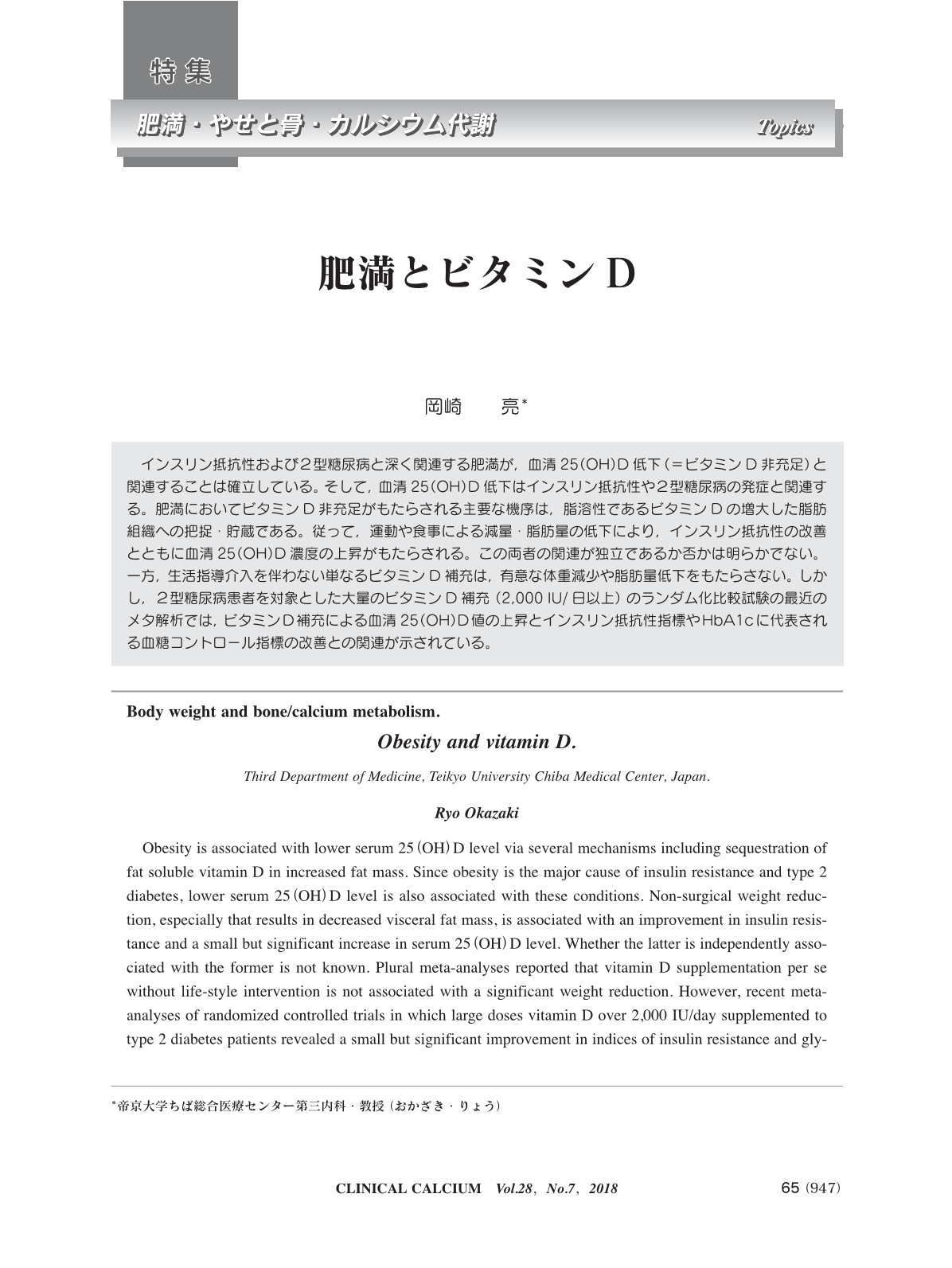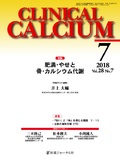Japanese
English
- 有料閲覧
- Abstract 文献概要
- 1ページ目 Look Inside
- 参考文献 Reference
インスリン抵抗性および2型糖尿病と深く関連する肥満が,血清25(OH)D低下(=ビタミンD非充足)と関連することは確立している。そして,血清25(OH)D低下はインスリン抵抗性や2型糖尿病の発症と関連する。肥満においてビタミンD非充足がもたらされる主要な機序は,脂溶性であるビタミンDの増大した脂肪組織への把捉・貯蔵である。従って,運動や食事による減量・脂肪量の低下により,インスリン抵抗性の改善とともに血清25(OH)D濃度の上昇がもたらされる。この両者の関連が独立であるか否かは明らかでない。一方,生活指導介入を伴わない単なるビタミンD補充は,有意な体重減少や脂肪量低下をもたらさない。しかし,2型糖尿病患者を対象とした大量のビタミンD補充(2,000 IU/日以上)のランダム化比較試験の最近のメタ解析では,ビタミンD補充による血清25(OH)D値の上昇とインスリン抵抗性指標やHbA1cに代表される血糖コントロール指標の改善との関連が示されている。
Obesity is associated with lower serum 25(OH)D level via several mechanisms including sequestration of fat soluble vitamin D in increased fat mass. Since obesity is the major cause of insulin resistance and type 2 diabetes, lower serum 25(OH)D level is also associated with these conditions. Non-surgical weight reduction, especially that results in decreased visceral fat mass, is associated with an improvement in insulin resistance and a small but significant increase in serum 25(OH)D level. Whether the latter is independently associated with the former is not known. Plural meta-analyses reported that vitamin D supplementation per se without life-style intervention is not associated with a significant weight reduction. However, recent meta-analyses of randomized controlled trials in which large doses vitamin D over 2,000 IU/day supplemented to type 2 diabetes patients revealed a small but significant improvement in indices of insulin resistance and glycemic control. The beneficial effects of vitamin D supplementation on glucose metabolism appeared to be more prominent in non-obese subjects in whom higher serum 25(OH)D level were attained, suggesting potential benefits of vitamin D on glucose metabolism is not mediated by weight or fat mass control.



